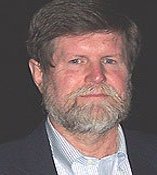Dr. David Langston
Professor Emeritus, English

- david.langston@mcla.edu
- Phone
- (413) 662-5482
- Office
- Mark Hopkins Hall 107A
Education
Ph.D., Stanford University, 1977
M.Div., Union Theological Seminary (NY), 1971
B.A., Oklahoma Baptist University, 1967
Courses Taught
CCCA 203: Inventing Modernism
ENGL 371: American Renaissance
ENGL 250: Introduction to Literature
ENGL 349: The Romantic Movement
ENGL 471: Kubrick and Kurosawa
CCAP 300: Film as Philosophy
Research/Creative Interests
Comparative literature, the Romantic movement, post-modernism, American literature, film.
My teaching and research both focus on the suggestion that story telling is central to every social and cultural activity. My courses and scholarship bring the specifics of individual texts — whether lyric poems, television advertisements, or epic films — into conversation with larger patterns of storytelling. Every specific text is shaped by a big pattern, but more importantly the big pattern is being evaluated and changed by the individual text. Studying cultural message systems in this way means we need to understand social systems, to be savvy about political and artistic history, and to be judicious about the dynamics of artistic form.
My training has been varied: as an undergraduate, I majored in history, and then I pursued theology, philosophy, and modern literature in graduate school. But respect for close textual analysis is central to all those fields, and I consider the pleasures of close reading to be the beginning and end -- the motive and the goal -- of every formulation of cultural theory. I am currently completing a research project on Vikram Chandra's novel, Sacred Games.
Teaching at MCLA is always fresh and invigorating because the students raise insistent and interesting questions about the relevance and implications of their studies. The college is small enough that I get to know my students as individuals, and it is big enough to sustain an array of communities of interest.
On May 18, 2008 at Smith College, Margaret Edson delivered a stirring commencement address where she espoused the core values on which classroom teaching centers:
Classroom teaching is a physical, breath-based, eye-to-eye event.
It is not built on equipment or the past.
It is not concerned about the future.
It is in existence to go out of existence.
It happens and then it vanishes.
Classroom teaching is our gift.
It's us; it's this.
